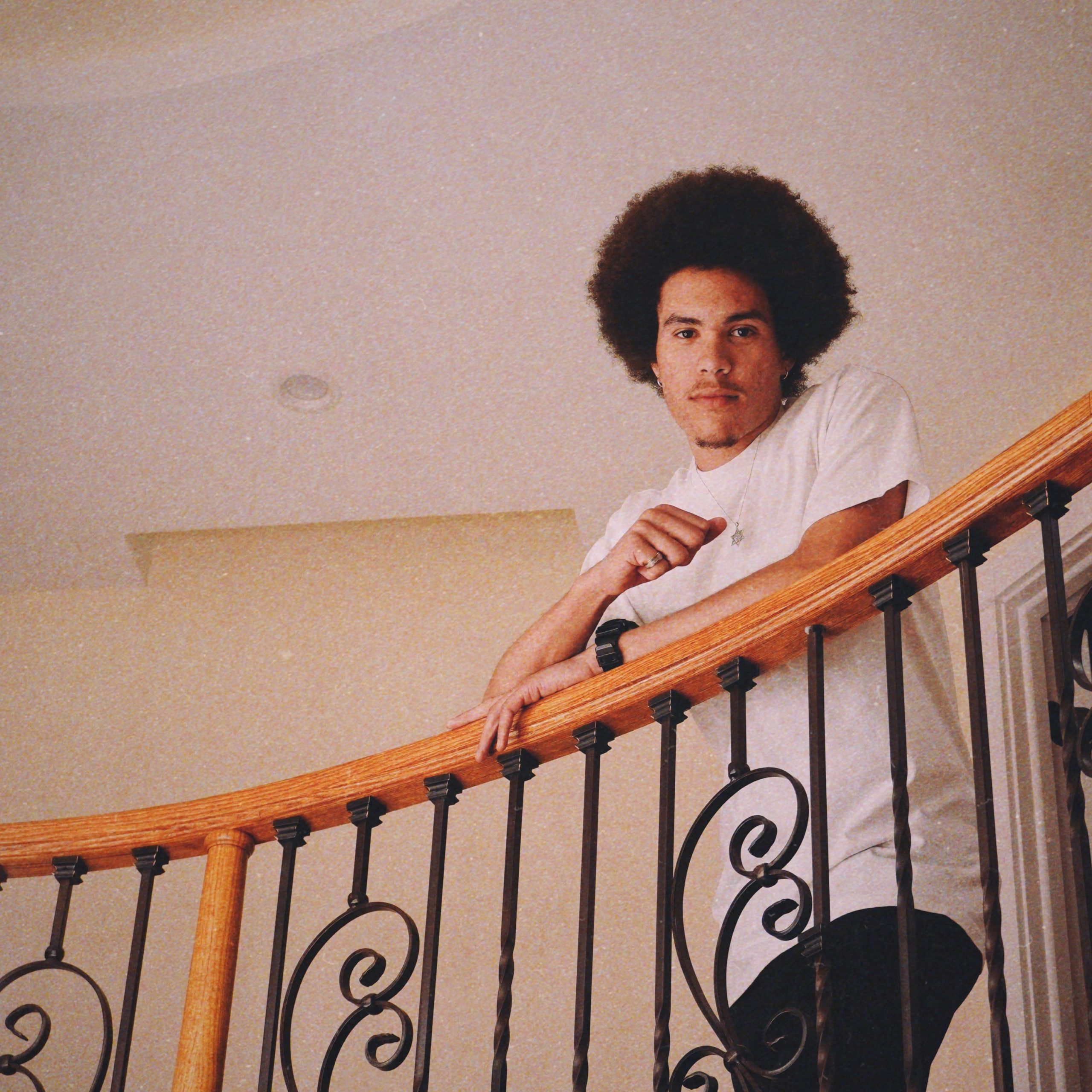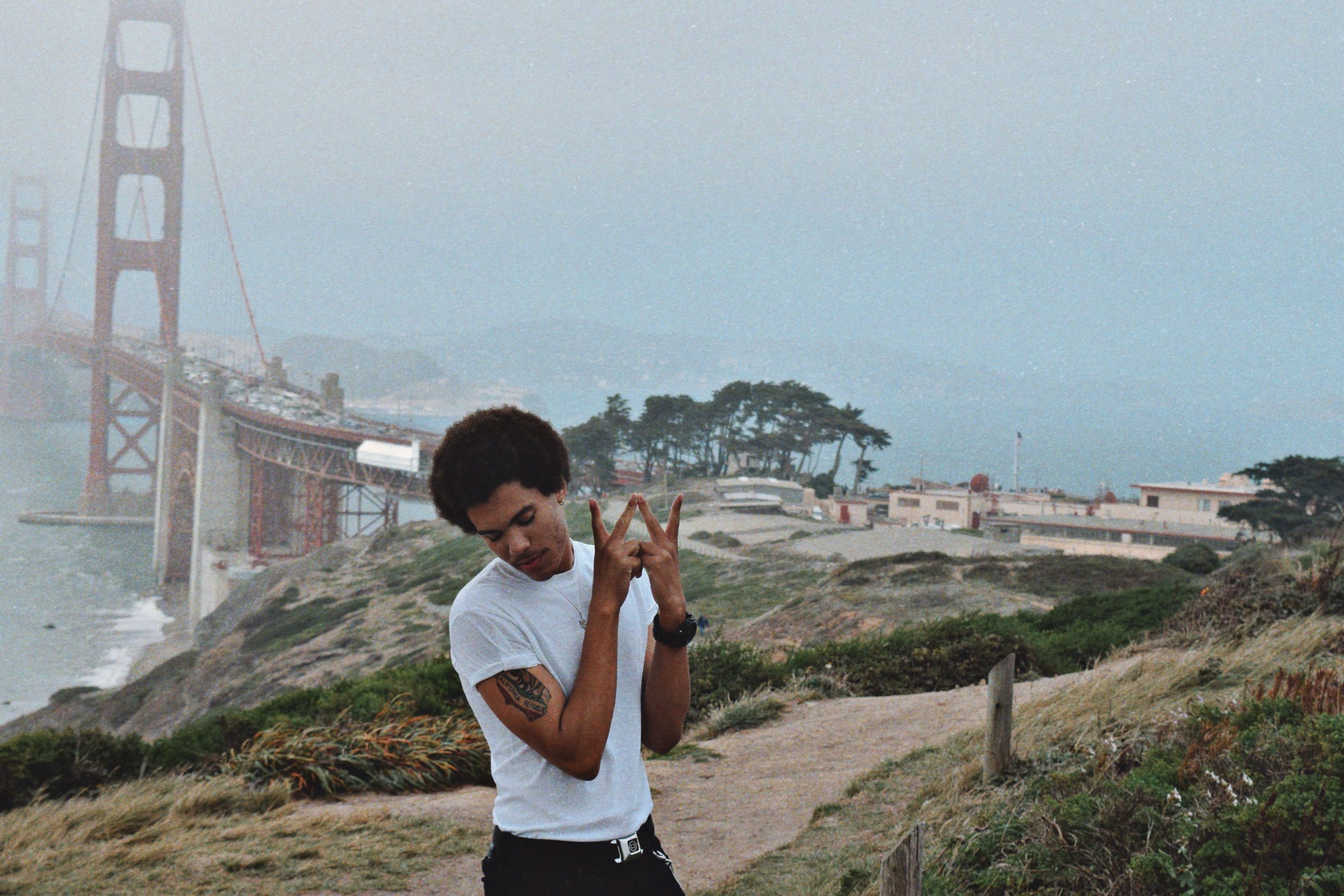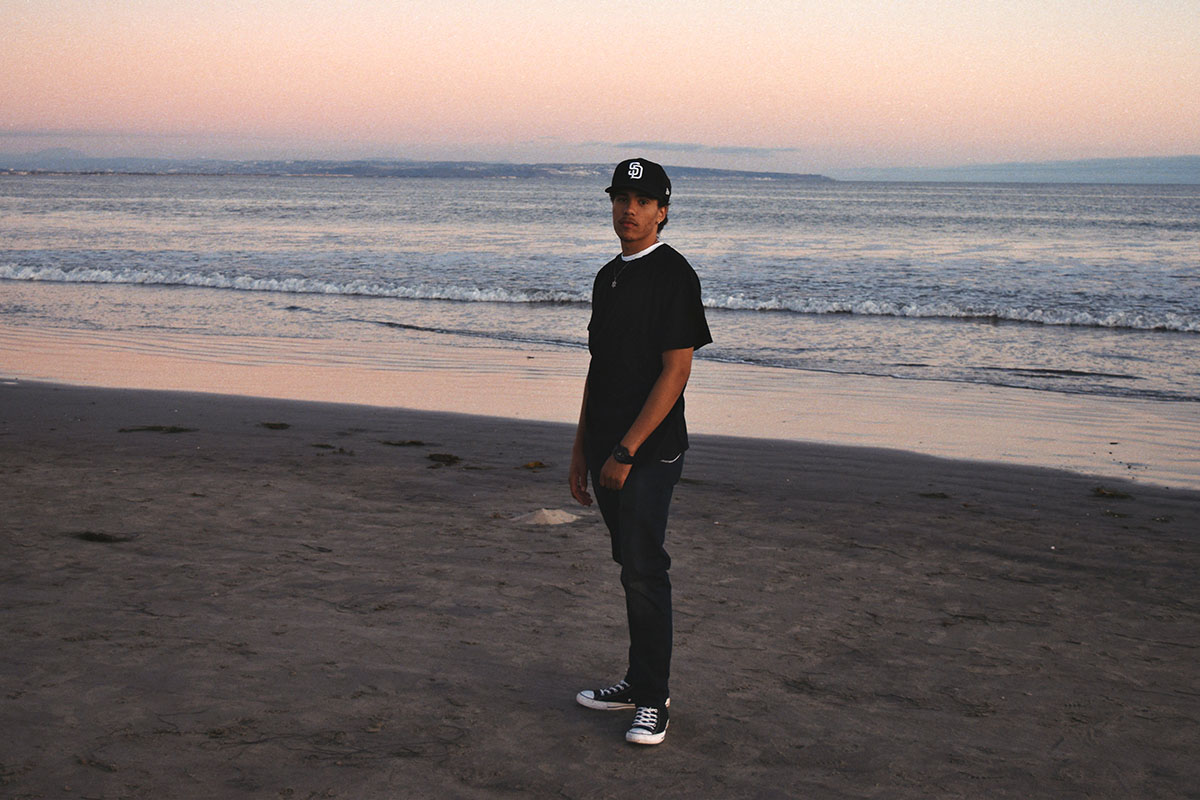Noah Shufuntinsky, also known as Westside Gravy, writes and produces powerful rap music that celebrates the intersection of his Jewish and Black identities. He made waves in 2019 with his song “Diaspora” with lyrics like, “I’m a proud part of the diaspora in my heart I hold Jerusalem and Africa” and “Check out the flag that I’m waving, two blue stripes and a huge star of David.” His more recent songs “Benjamins Baby” and “Stereotypes” are just as bold, calling out modern anti-Semitism and institutionalized racism.
Noah has gone on to sing with Jewish reggae legend Matisyahu and on the AIPAC stage in 2020. — he is an artist to watch, and an outspoken young leader of the Jewish people. He’s done all this while still attending college at George Washington University. When I met Noah, I was in awe of his ambition, fierce support of the state of Israel, and how he uses his voice to amplify Black Jews. Recently he’s been popping off (rightfully so) so I wanted to check in before his hype gets too big.

This interview has been edited and condensed.
What was your Jewish upbringing like?
Growing up, I always had a connection to my Jewish identity; it was important to my parents to foster that connection for me and my siblings. I express my Jewish identity in so many ways, whether it’s through music or practicing religion. I moved around a lot growing up, so how observant we were depended on where we lived and the synagogue we attended. My family belonged to many synagogues ranging from Reform to Reconstructive. On campus at George Washington University, I go to Hillel and I’ve been to Chabad.
I go where I feel a Jewish connection. Even though I moved around a lot, and was exposed to many different Jewish experiences, my Jewish identity was always constant.
What’s your experience being Black and Jewish?
I love being Black and Jewish. I’ve had to deal with double the racism, but that’s kinda just the way it is. I’m very grateful for my parents and family, who’ve supported me and prepared me to deal with it from a very young age, and helped me feel empowered to use my music to deal with it in a productive way. All the cultural history gives me inspiration, and stories of my ancestors remind me of all I have to appreciate and my responsibility to keep moving forward.

What got you into rap/music?
I can’t remember a time in my life without music. My parents played all different types of genres for me growing up: reggae (a lot of Bob Marley!) and a lot of oldies, like Sam Cooke and Richie Vallon. My parents [also] played storytelling rap music, old school ‘90s style rap, which was a lot of Tupac and Dr. Dre.
Artists who put a lot of effort to portray their environment through their lyrics have been extremely influential to me. My parents playing old school rap gave me an ear for rap music. It’s what shaped my perspective on different artists, and influenced the type of music I wanted to make.
Most of your songs have strong Jewish references. Two of your most recent songs, “Benjamins Baby” and “Balagan,” are explicitly about being Jewish. In “Balagan,” you also rap in Hebrew and Russian. Can you talk more about this?
I wanted to make an upbeat, fun song and play around with different instruments and the beat, which became “Balagan.” The first instrument I chose for the beat was a Russian balalaika, which is a plucked instrument. My dad is a Russian Jew, so I grew up listening to a lot of Russian folk music. I also incorporated Middle Eastern instruments and sounds to make up the beat.
I wanted to incorporate fun elements of Russian and Israeli culture that I’ve become connected to. The first verse is lighthearted and talks about elements of Russian culture that were part of my childhood. The second verse is more personal and highlights my dad, who came to America as a refugee, and my babushka [grandmother], who kept me connected to my Russian heritage, that gave me this Russian culture. The song is a celebration of how far we’ve come and a testament of the hard work it took to get here. My babushka always supported me and was proud of me and my music.
What about “Benjamins Baby?” What inspires you to write more politically charged songs?
“Benjamins Baby” is a politically charged/politically conscious song about Jewish stereotypes. Almost every other Jewish person I’ve met has had anti-Semitic experiences. I wanted to get the irony across [about] all these crazy, ridiculous ideas, stereotypes and anti-Semitic tropes [that] are present all over the media.
This song comes from my own personal experience with anti-Semitism. In the video, I use all sorts of examples, historical and modern, to show the history of anti-Semitism. I wanted to take this serious topic and portray it in a creative way that makes people think about the impact of anti-Semitism and their actions.
Do you write and produce your own music?
Yes, I write all my lyrics, make all my beats, record and mix all my music myself. Once I started getting serious about music in high school, I started looking for a producer, but it wasn’t working out. I decided to figure out how to produce my own music and fell in love with the process of producing a song. From there, I learned how to record and mix. I loved that I could really shape the sound to what I wanted; it’s not just about lyrics and delivery — what gets my message across is the beat, effects, and editing.
What’s your ultimate goal?
I’m not sure yet. I love expressing myself through music and I’m happy that I’ve had success doing it. Regardless of my career and future endeavors, I will continue to make and produce music.
I’m also really passionate about education. I’m majoring in Judaic studies at George Washington University. My educators have given me so much in life and taught me where I came from. I think there’s a space where education and music can overlap. Through the performances I’ve done with BBYO and other youth groups, I’ve used music as an educational tool — I’m able to talk to high school students about anti-Semitism and Jewish identity. I can share with others how music can help you express your Jewish identity.
You performed at AIPAC, what was it like?
It was an absolutely amazing experience. I still haven’t gotten over it. I was able to perform “Diaspora” with JewKvox, an a capella group made up of some of the most talented musicians I’ve ever worked with. I was so grateful they incorporated me and invited me to their set. Performing “Diaspora” collectively with live artists helped me see [the song] in a completely different way.
Diaspora celebrates our collective Jewish identity; performing with other Jewish artists who perform and interpret their Jewish identity musically was powerful. Just being at AIPAC is moving as well — so many different people coming from all over the world and political spectrum who all share a love for Israel is a special thing to be a part of.
How do you balance your schoolwork, performing, and producing music?
Balancing it all has become more and more difficult as time has gone on. I’ve always produced and written [my own] lyrics, so I’m used to that aspect of being an artist. But, in the past year in a half, I’ve gotten a lot more performance opportunities — balancing performing with school has been difficult. I try to space out my classes so I’m free on the weekends to travel. It’s all about staying organized and keeping my priorities straight.
What’s coming up for you? Anything to plug?
I’m always releasing new music, and two new songs [came] out in May: “Legacy” and “Aklha,” which is partially sung in Hebrew.
All images courtesy Noah Shufuntinsky/Westside Gravy.



